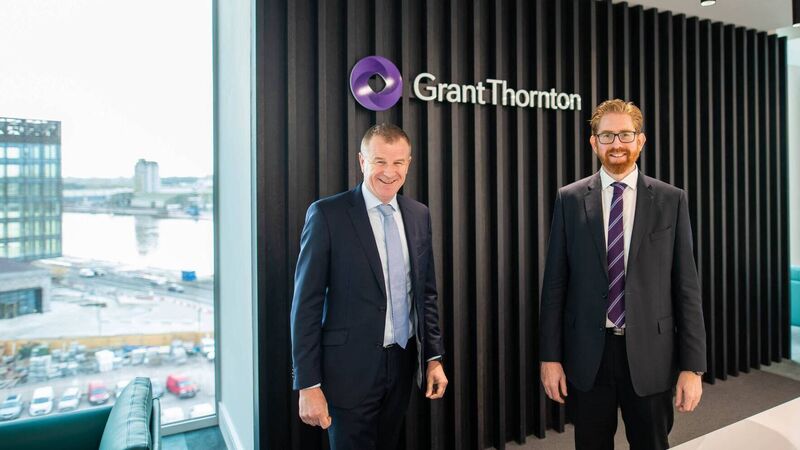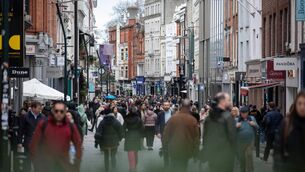Why competition in financial services is paying off for Cork

Audit partner Michael Nolan and financial accounting and advisory services partner Ger Walsh at Grant Thornton's new office at Penrose Dock, Cork.
Despite the uncertainty faced by every business across the globe at the moment, one part of Cork has its eyes firmly on a positive future.
On the city's North Docks, a number of key office and hospitality developments have reached completion giving the city, and wider region, a sense of optimism.











